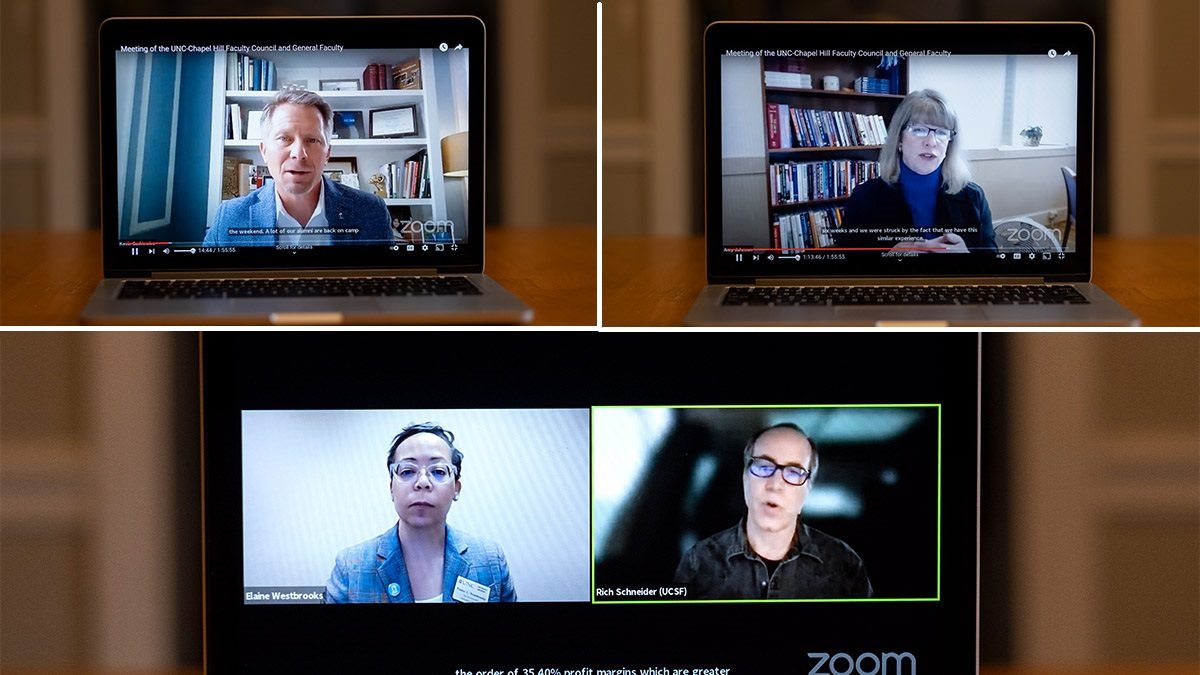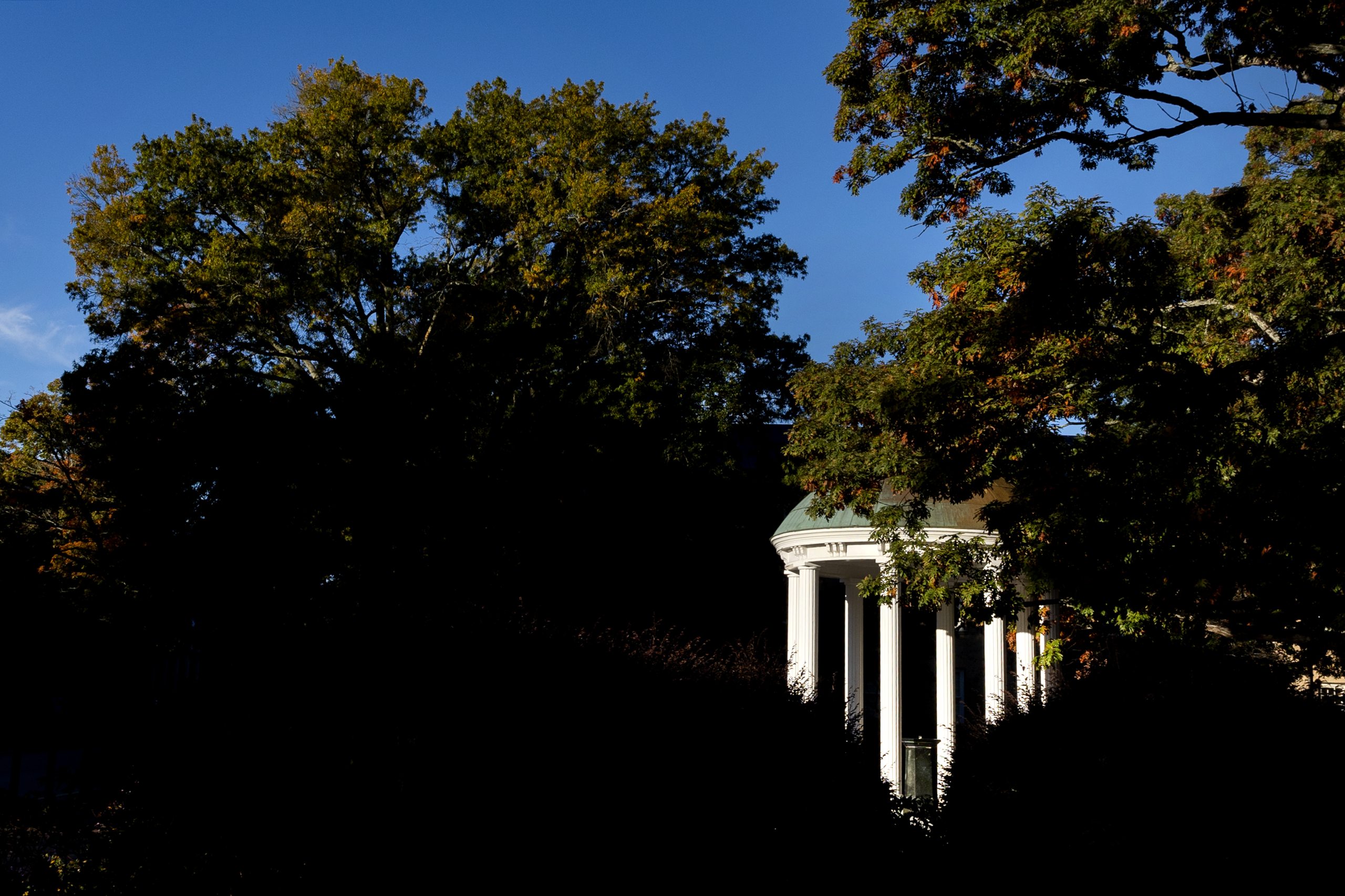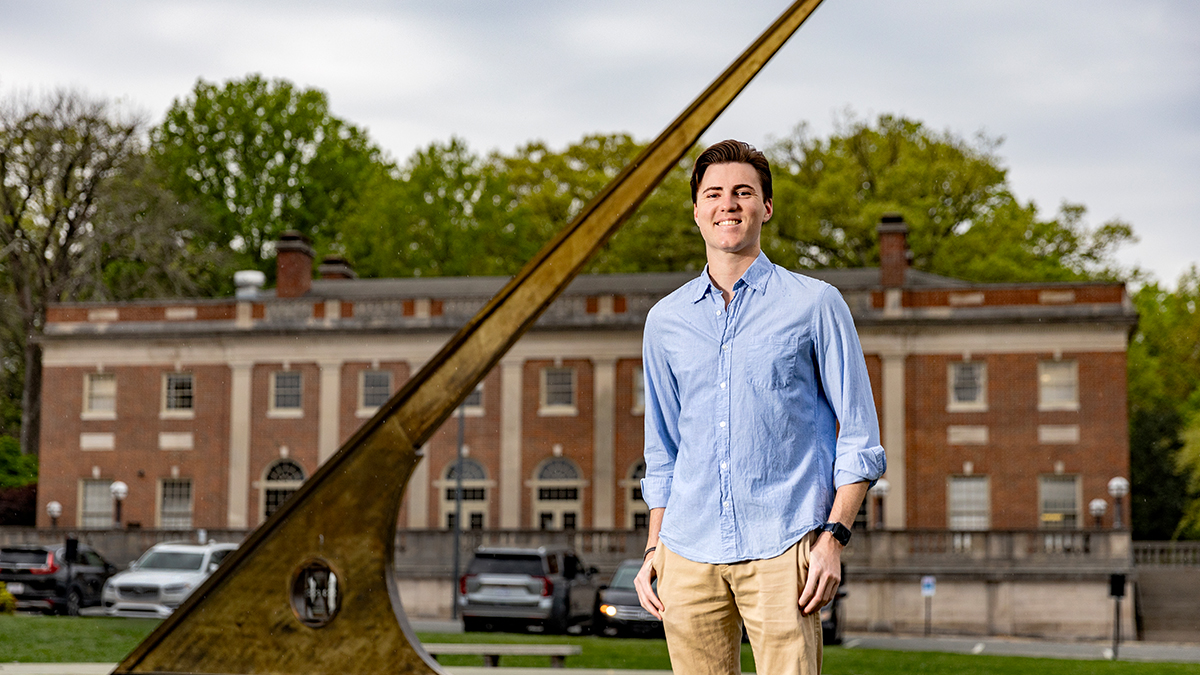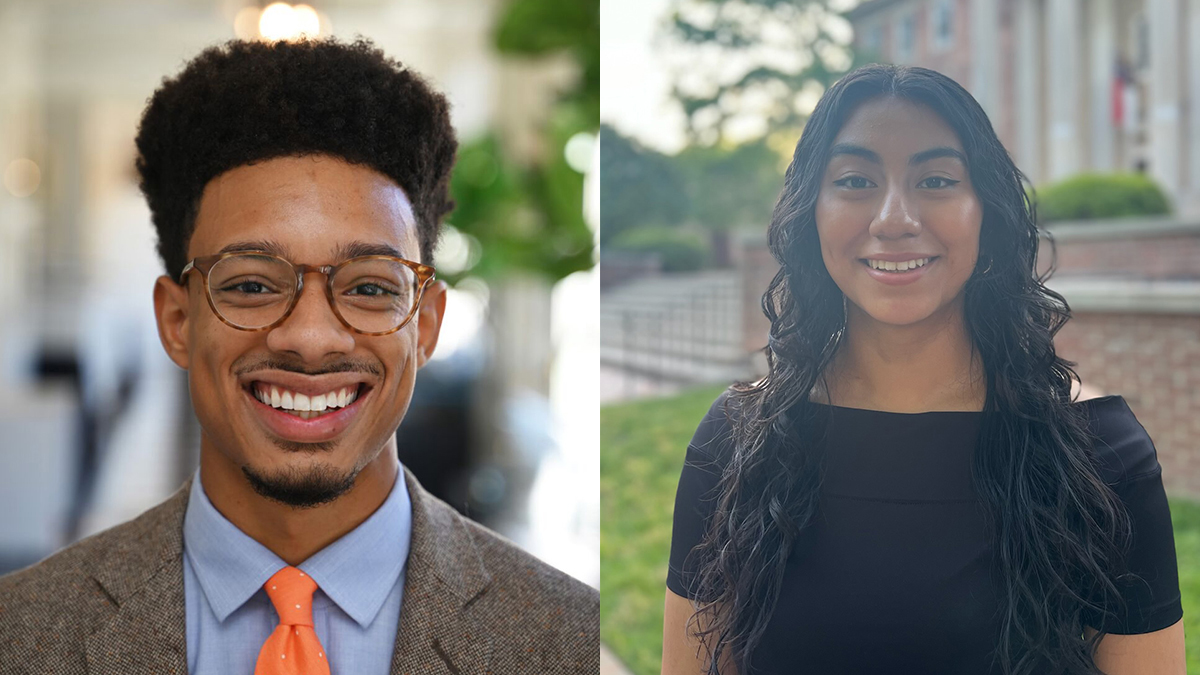Faculty Council members hear updates on a new partnership, mental health
The Council also heard from a University of California researcher who shared an alternate method for academic publishing implemented by his state’s university system to ensure open access to its research.

Faculty Council members heard updates on a new partnership with North Carolina A&T, mental health at Carolina and a different model for academic publishing at the University of California System.
Carolina is part of a new partnership with North Carolina A&T in Greensboro, a sister institution in the UNC System, with each school committing $500,000 to seed projects to expand and build research infrastructure to facilitate broader and deeper partnerships, said Chancellor Kevin M. Guskiewicz at Friday’s virtual meeting of Faculty Council and the general faculty.
At the recent Association of American Universities annual conference, Guskiewicz was paired with Harold Martin, A&T chancellor, for a panel discussion. The goal, Guskiewicz said, is to help North Carolina’s Historically Black Colleges and Universities attain R1 status, adding that A&T is the closest of any HBCU to reaching top-tier research status.
In the past, Carolina partnered with A&T in health, climate science, biotechnology and other research. The new partnership will focus on four areas: data science, environment and climate, cybersecurity and health disparities.
“I’m pleased that we were able to deliver on this promise to build stronger partnerships with our sister institutions across the state,” he said. “A&T is a national powerhouse in research.”
Campus updates
With the semester’s end quickly approaching, Guskiewicz thanked everyone for the support of students and the Carolina community for what he called in many ways a successful semester, but one that also brought many challenges, especially over the past month.
With regard to the COVID-19 pandemic, Guskiewicz said Carolina announced a vaccine requirement to comply with President Biden’s executive order.
Currently, 94% of students and faculty and 86% of staff have attested to receiving a COVID-19 vaccination. This commitment, he said, helped make Chapel Hill one of the most vaccinated communities in the state.
The pandemic not only affected physical health, but also mental well-being, Guskiewicz said.
Carolina will add one wellness day to the spring semester calendar and is looking at adding days to the 2022-23 academic calendar, he said.
The University will host a Mental Health Summit on Nov. 15 to define a campus-wide response. “I’m confident we can bring unique resources and expertise to Carolina to help find solutions not only for our students but broader society,” Guskiewicz said. “That’s what a leading public research university does … we find solutions to problems that society is facing.”
To create more understanding about the well-being of the community, representatives from Student Affairs provided information about how their areas work to support students.
Amy Johnson, vice chancellor for student affairs, thanked faculty for their partnership during the recent “extremely difficult time” due to the death of several students. “The loss of any student is a tragedy … and we have lost several in the last couple of months.”
Johnson explained Student Affairs’ approach to communications and crises on campus. When a student death occurs, the Student Affairs team immediately mobilizes to support students. The response includes support from Carolina Housing, Counseling and Psychological Services, the dean of students and student wellness units, she said.
Student Affairs works with students immediately affected and also connects with others who may have known the student, such as other residents, students in clubs or organizations and places on campus where a student may have worked.
The team works with families regarding making any public announcements about the death. One addition Johnson said her team made is adding notifications to respective deans, department heads and, in some cases, faculty members.
Johnson’s team is assessing its immediate crisis response protocols, including publishing the policies and protocols so that it’s clear and transparent to everyone.
Avery Cook, assistant director of CAPS, said CAPS operates a walk-in service for a first visit, allowing students to initiate services when they decide they want services during business hours, Monday to Friday. Students can come to CAPS, complete paperwork and meet with a therapist to develop a plan going forward, she said.
Students who need assistance with medication management or group therapy can find it at CAPS. For those students who have long-standing therapy needs, CAPS will help connect them with therapists in the community, she said, adding that CAPS works to help them access funding and insurance.
CAPS also works with students who may have an acute mental health episode, working to ensure they have safety plans outside CAPS or inside the hospital. Also, the University now has an online psychotherapy service called UWill.
Students can also call CAPS 24/7 to either speak to a therapist immediately to help them cope in the moment or bridge them to further support, Cook said. There is no longer a wait list.
Allen Blattner, executive director of Carolina Housing, said Carolina has students living on campus every day of the year and provides support and staffing to reflect that.
Resident advisers, RAs, live on each floor in each residence hall, he said. They are supported by community directors, full time professionals who have master’s degrees in higher education administration or college counseling and who live in on-campus residence communities they support.
Residence life leadership staff and senior housing staff are on call every day of the year to support the RAs and community directors, Blattner said.
For each situation that may arise, Blattner said a staff member follows detailed protocols that define roles for each level of staff and escalation expectations to ensure timely communication. Thorough training in these protocols is provided, along with appropriate after-hours resources, such as CAPS on call, the dean of students office crisis response team and UNC Police.
Faculty Council members also shared personal experiences about mental health and well-being they had heard from students.
Open access publishing at the University of California system
As a follow-up to the recent announcement of rising journal costs and University budget reductions, University Librarian Elaine Westbrooks said Faculty Council had provided support through resolutions over the years for author rights and for the library to cease signing confidentiality agreements with publishers.
Westbrooks introduced Rich Schneider from the University of California, San Francisco, to share the University of California system’s work in changing the academic publishing model. Schneider is a professor in the department of orthopedic surgery and a basic researcher in how the skeleton develops.
Under Carolina’s current publishing model, faculty transfer rights to the scholarly content they create to publishers and then expect University Libraries to buy back the content for a significant fee.
Schneider described a better model negotiated with scholarly publishers by the University of California system: Costs are shifted from the subscription side — fees paid to access published content — to investing in the publication side, making the content open to all. Under the agreement, anyone can read the work and re-use the content, he said.
Rather than starting new journals, this model is applied to existing scholarly journals, which remain peer-reviewed though freely available to anyone.
Schneider added that open access was important to the California system because it is a public system and faculty believed everyone should have access to the journals, he said.
Schneider also shared resources used by the University of California in talking to stakeholder groups.
In other actions:
- Faculty Council confirmed a resolution from the Faculty Executive Committee charging the Educational Policy Committee to study class cancellation policies and procedures.
- Guskiewicz said the search for a new provost continues as scheduled, and he hopes to make an announcement by mid-November.
- The next Faculty Council meeting is a virtual format set for Dec. 3. Faculty Council will meet in a hybrid format on Jan. 14, Jill Moore, secretary of the faculty, announced.
A recording of the meeting is available.




